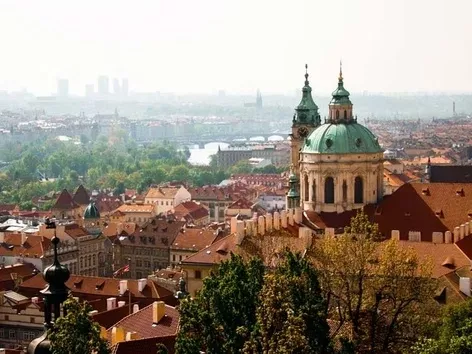How to get a residence permit in Greece: types of permits and registration procedure
Table of contents
- Types of residence permits in Greece (depending on duration)
- Residence permit in Greece for EU citizens
- Citizens of non-EU countries
- The procedure for obtaining a temporary residence permit in Greece for citizens of non-EU countries
- How much does it cost to obtain a temporary residence permit in Greece?
- Long-term residence permit in Greece

Greece is a European country that attracts expats from different parts of the world. For long-term residence here, a foreigner must have a residence permit. Find out what types of residence permits are available in Greece and what is the procedure for obtaining them
Greece is not only a country of gods and heroes, familiar to every person since childhood. Greece is also bright sun, blue sea, golden sand and coffee aromas in narrow streets. Many people dream of visiting the Greek coast on vacation, but this country is also a popular destination for moving to permanent residence.
Living in Greece has a number of advantages - the status of a member of the EU, a loyal migration policy, a good level of security, sunny weather, a rich cultural and historical heritage and nature. The prospect of living in Greece as a permanent resident attracts expats from around the world, including citizens of Germany, New Zealand, Canada and Ireland.
How to get a residence permit in Greece in 2024? We tell in this article.
Types of residence permits in Greece (depending on duration)
Greece offers two main types of residence permits: temporary and permanent.
- The procedure for issuing a temporary residence permit lasts 2 months.
- In order to obtain a permanent residence permit, it is usually necessary to live in the country for 5 years.
There are various ways to obtain a temporary residence permit in Greece, offering options for those who want to work, start a business, continue their academic studies or retire in the country. Financially independent people can contribute to the Greek economy and obtain a residence permit for 5 years without even moving to Greece.
Alternatively, you can also apply for Greek citizenship after 7 years in the country (for this you must demonstrate some knowledge of the Greek language, history and culture).
The first step to obtaining a residence permit in Greece is to determine the type of residence permit you need. It is also worth considering that the procedure for issuing a permit depends on your citizenship, the purpose of moving and other factors.
Residence permit in Greece for EU citizens
If you are an EU citizen and want to move to Greece to work, you do not need to go through the long and complicated procedure of obtaining a permanent residence permit.
EU citizens do not need a residence permit, but must obtain EU registration from the competent police authorities in Greece.
In order to apply, it is necessary to demonstrate the availability of a minimum of 5,000 euros in a bank account or, if you plan to work for a Greek employer, to have a letter of offer or an employment contract provided by the employer.
In addition, it is necessary to have confirmation of housing for living in Greece - apartment rental agreement, etc.
Citizens of non-EU countries
If you are a non-EU citizen and moving to Greece, you will need to obtain a D visa, also known as a national (long-term) visa. This type of visa is required by all non-EU citizens who want to live in Greece for a long time.
The residence permit allows the holder to live in the country for at least one year. According to Greek legislation, a residence permit is issued on the following grounds:
1. For work purposes.
If you want to move to Greece to work, you must first apply for and receive a work visa. Applications for work visas are filled out at Greek diplomatic missions (embassy/consulate) in your country of residence.
After obtaining a work visa, you need to enter Greece and then apply for a residence permit for employment at an authorized government institution. This type of visa is valid for 2 years and can be extended after the expiry date.
Greece, as a member of the European Union, is a promising country for the employment of expats. How to get a work visa to Greece and what conditions of employment in the country are relevant in 2024, read at the link.
2. For education, volunteer work, scientific and professional training.
To move to Greece to study, you must be accepted to a higher education institution in Greece certified by the Greek Ministry of Education. If you are enrolled at a Greek university, you can continue to apply for a student visa and upon arrival in Greece you will need to apply for a residence permit for the purpose of study.
A student visa is issued for one year (12 months) and can be extended for the same period of time if you still meet the requirements.
3. Self-employment
You can be a freelancer, online worker, self-employed or digital nomad and can prove a stable income of 3,500 euros per month. One of the main conditions is that you do not look for work in the country after moving. However, if you are planning to move with your family, you will need additional income. The permit will need to be renewed every two years. To be able to extend your residence permit after two years, you must stay in Greece for at least 6 months a year.
4. Investments in private property
Known as the "Golden Visa", this is by far the most convenient way to obtain long-term and permanent residence in Greece. All you need to do is buy a private property for a minimum of 250,000 euros depending on the region, submit a minimum number of documents and wait 3-6 months for approval.
Greece is one of the few countries in Europe that offers "golden visas". Read about the conditions for obtaining a Golden visa in Greece in 2024 in this article.
On the basis of the "golden visa" you are allowed to move with your family, and you also do not need to live permanently in the country. Any property is suitable for obtaining the document, as long as it is not located near the border or military bases.
5. For family reunification.
One way to get a residence permit as an EU citizen is if you have a Greek partner or close family member (you don't have to be married). They can accompany you to the meeting and have to sign several documents. Note: If you choose this option, there will be fewer documents.
6. 3 humanitarian, exceptional and other reasons.
A residence permit can be granted to people who have fled to Greece for various reasons.
7. For victims of human trafficking and illegal immigration of migrants.
The procedure for obtaining a temporary residence permit in Greece for citizens of non-EU countries
Step 1 – Prepare a package of documents for obtaining a type D visa
To obtain a D visa, you must appear at the consulate, pass an interview regarding the purpose of your entry and stay in Greece, provide the necessary documents and pay a fee. You will not be fingerprinted during the application process. Package of documents for visa D:
1. Completed questionnaire.
2. The latest color photograph of the applicant.
3. Passport or any other travel document recognized by the competent authorities of Greece.
4. Criminal record certificate from the applicant's country of residence.
5. A medical certificate stating that the applicant does not suffer from any diseases that may pose a risk to public health.
6. Insurance policy.
7. Additional documents corresponding to the purpose of entry and stay in the country.
When planning a trip abroad, be sure to take care of a travel insurance policy, which will protect you from unforeseen situations during the trip and compensate for unplanned expenses - for treatment, in case of lost luggage, flight cancellation, etc.
Stage 2 – Obtaining a D visa and entering Greece
Normally, the processing of the D visa application takes two weeks. After receiving a type D visa, you can go to Greece.
Upon arrival in Greece, apply for a permanent residence permit.
The initial application must be submitted in person in Greece by the applicant, his lawyer or a relative.
Applications are accepted by the Department for Foreigners and Migration of the Decentralized Administration and the Department of Migration Policy of the Ministry of Internal Affairs.
To obtain a residence permit, applicants also submit the following package of documents:
1. Completed questionnaire.
2. A certified copy of a valid passport or travel document recognized by Greece with a valid entry visa.
3. Receipt of application fee payment, if any.
4. Receipt for payment of the fee for issuing a residence permit card.
5. Insurance policy.
6. Four printed passport-type color photographs and the original on CD.
7. Additional documents corresponding to the type of residence permit are required.
Receive a residence permit in two weeks.
How much does it cost to obtain a temporary residence permit in Greece?
The application fee is €150 for a 1-year permit, €300 for a 2-year permit and €450 for a 3-year permit. Children under 18 are exempt from this fee.
The fee for issuing a residence card is 16 euros in each case.
Long-term residence permit in Greece
In order to obtain permanent residence in Greece, the applicant must meet the following conditions. They have:
1. Legally resided in Greece for five consecutive years. Departure from the country is allowed for no more than 10 months in total and no more than 6 months in a row.
2. Knowledge of the Greek language at the A2 level and elements of Greek history and culture. If the applicant cannot fulfill this condition, the required period of residence is extended to 12 years. Relatives of Greek citizens are exempt from this requirement.
3. Income not lower than the annual minimum wage. In 2024, it is 9,960 euros.
The amount increases by 10% for each family member, but their income is also taken into account.
4. Registration address in Greece.
The cost of the application is 150 euros; processing time is 6 months. Permanent residence status is permanent, and the residence permit must be renewed every 5 years.
All permanent residents can work and do business in Greece.
To be eligible for Greek citizenship, you must have lived in the country for at least seven consecutive years.
We will remind you! For many people, living in Greece sounds like a dream. After all, here you can enjoy the coast of the Mediterranean Sea, taste delicious dishes and explore ancient ruins. However, when moving to a new country, it is very important to be aware of all the possible pitfalls. We have already talked about the advantages and disadvantages of moving to Greece in 2024.
For a safe move to Greece, obtaining citizenship and employment, use the advice of an international lawyer.
We help to solve complex and simple issues for your comfort and safety in Greece.
Products from Visit World for a comfortable trip:
Checklist for obtaining a visa and necessary documents in Greece;
Legal advice on immigration to Greece;
Travel insurance for foreigners in Greece;
Medical insurance around the world.
We monitor the accuracy and relevance of our information, so if you notice any errors or inconsistencies, please contact our hotline.
Frequantly
asked questions
Is it difficult to get a permanent residence in Greece?
Where can I get a residence permit in Greece?
What is the 5-year law in Greece?
Recommended articles
1 min
Residence permit
Golden visa in Dubai for teachers: what it is, requirements and registration procedure
The Dubai Gold Teacher Visa is a long-term residence permit that allows qualified teachers to live and work in the country. Find out who is eligible for a visa and what is the procedure for issuing a permit
28 Oct. 2024
More details2 min
Work
The EB1 visa allows expats who have made significant progress in their studies or work to immigrate to the United States. Given that in 2024 the country significantly simplified the requirements for applicants, obtaining this visa has become even easier. Find out who can get an EB1 visa in the US and what requirements are relevant in 2024
28 Oct. 2024
More details2 min
Work
Cost of living in Czech Republic: expenses for housing rent, food, transport and monthly budget
The Czech Republic is one of the most popular countries that expats choose to move to, because the country has a highly developed social sphere, interesting culture and career opportunities for foreigners. Find out what the cost of living in the Czech Republic is in 2024, namely the prices of housing, food, transport and much more in the country
29 Oct. 2024
More details1 min
Residence permit
Working in Italy: quotas for 2026–2028, when to apply and main sectors
In Italy, as in most EU countries, the issue of labor shortage is acute. That is why the country is actively working to attract foreign specialists. Find out what quotas for work visas are set for 2025 and how migration legislation will change
07 Nov. 2025
More detailsAll materials and articles are owned by VisitWorld.Today and are protected by international intellectual property regulations. When using materials, approval from VisitWorld.Today is required.
